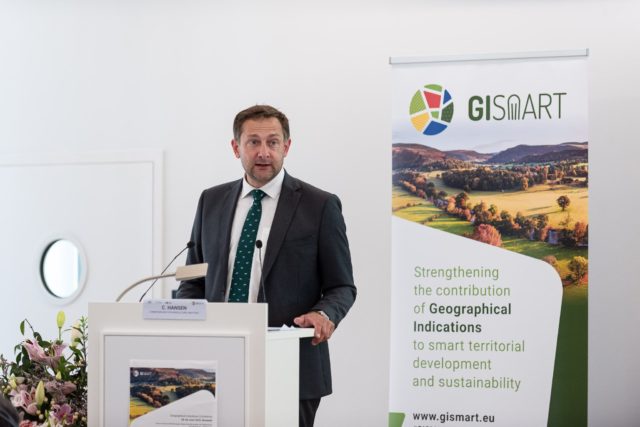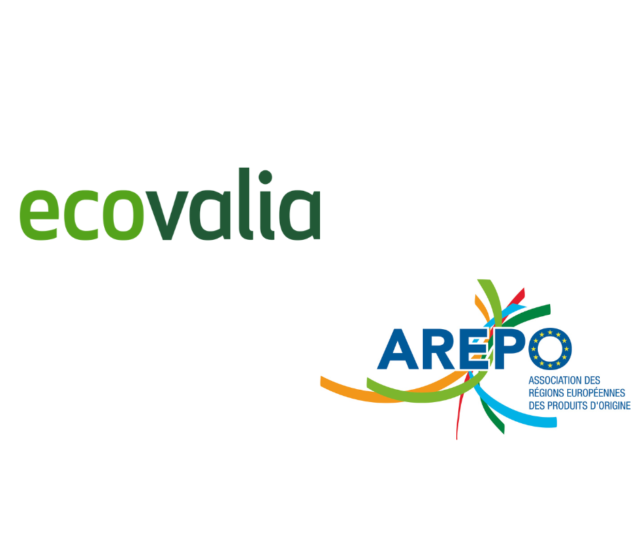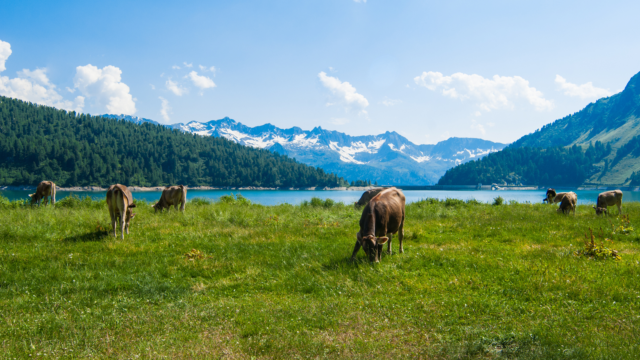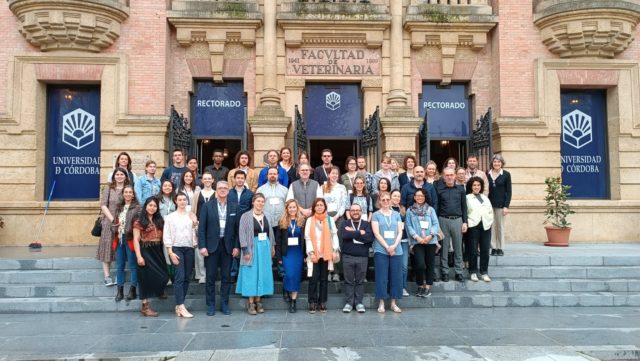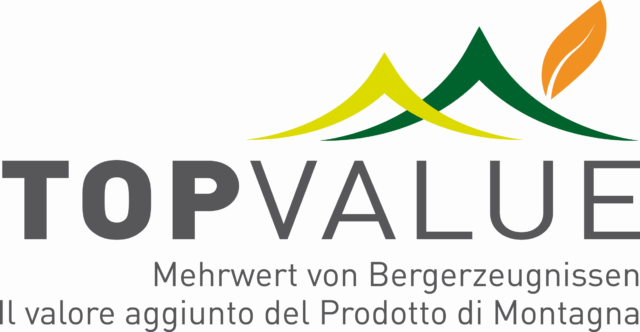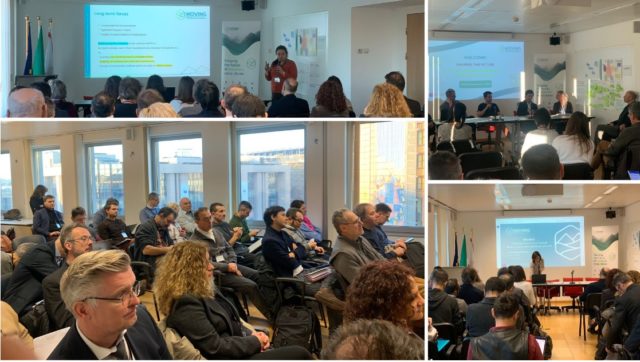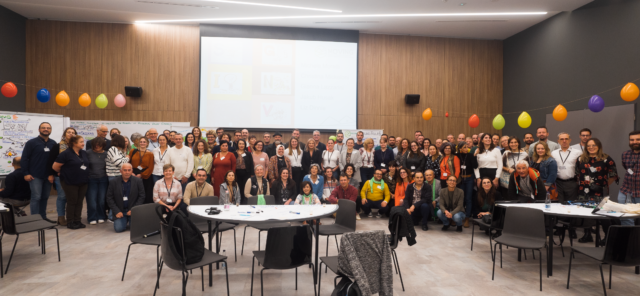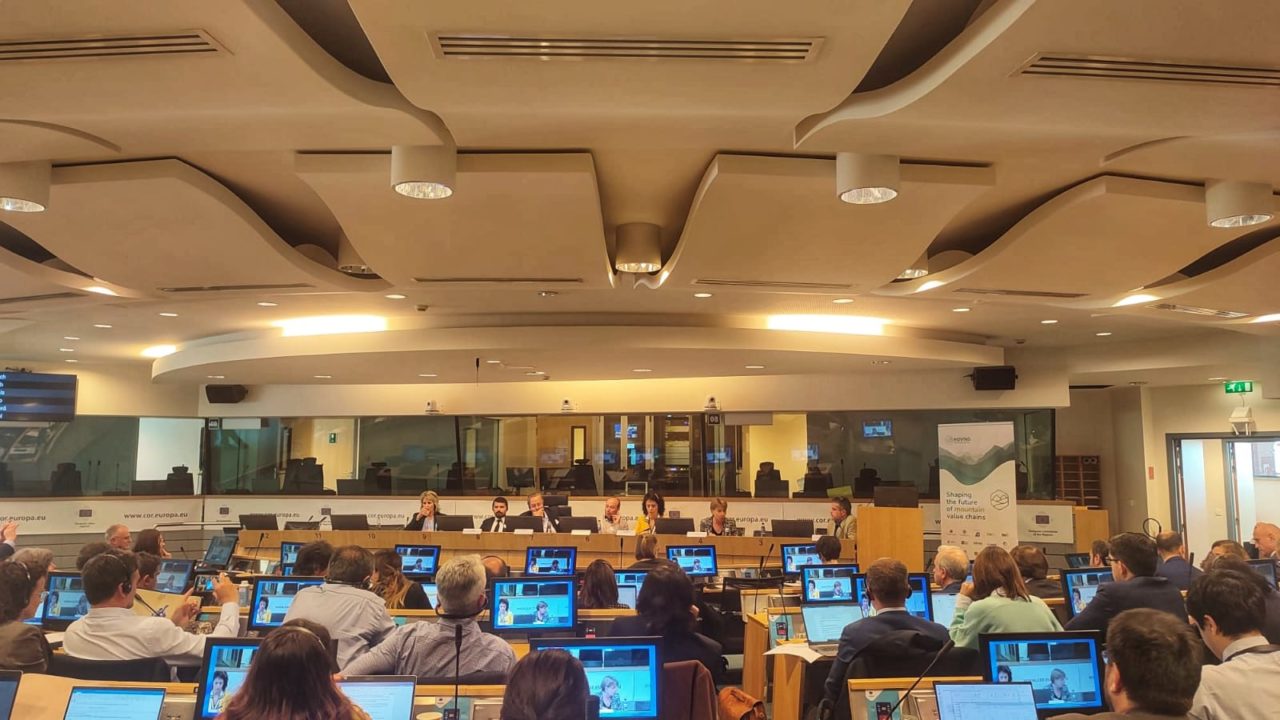
BRUSSELS, BELGIUM – 11 April 2024
On April 10th, a high-level conference was held at the European Committee of the Regions (CoR) to address the new EU legal framework for Geographical Indications (GIs) and quality products. Hosted by CoR member Karine Gloanec-Maurin, the event brought together EU Institutions, regional governments, producers of mountain and GI products, and agri-food sector stakeholders to explore the implications of the new regulation and how to ensure the unique characteristics of these products are preserved within the next Common Agricultural Policy (CAP) and other EU legislation.
Organised by AREPO, Euromontana, and oriGIn EU within the framework of the EU-funded MOVING project (MOuntain Valorisation through INterconnectedness and Green Growth), this event took place at an optimum moment, the day before the signing of the new legislative text. Furthermore, it allowed to reflect on the role of EU quality schemes in the sustainable development of rural and remote areas, with a particular focus on mountainous regions.
Mercedes Morán Álvarez, President of AREPO and regional Minister for Agriculture of Extremadura (Spain), welcomed participants. “GIs and EU quality schemes represent the highest quality of EU production and can contribute to the EU’s social, economic and environmental priorities and to the creation of public goods”, she reminded celebrating AREPO’s 20th anniversary.
Ms. Gloanec-Maurin echoed these sentiments, reflecting on her work as rapporteur for the CoR on the opinion on the revision of GIs.
Mar Delgado, MOVING Project Coordinator, presented the project’s objectives and key achievements, underscoring the importance of evidence-based recommendations for updating policy instruments to support sustainable mountain development. Part of this endeavour involves focusing on EU quality policy, including EU GI system and the Optional Quality Term (OQT) “mountain product”.
Diego Canga Fano, Director in charge of Outreach, Research & Geographical Indications, at DG Agri of the European Commission, introduced the new GI legislation, encouraging to already look at the future: “In the next term we should collectively think about an Action Plan to improve GIs with non-legislative measures, following the example of what has been done with organic”.
The opportunities created by the new regulation and the challenges ahead were further debated during the round table moderated by Angelo Di Mambro, Agrifood Editor at Euractiv.
MEP Anne Sander recalled her commitment as shadow rapporteur for the CAP reform and the GI review, and reiterated that «it is essential to promote GIs without discrimination. We also need to ensure that the specific characteristics of GIs are taken into account when future horizontal legislation is drawn up. The implementation of an Action plan for GIs by the European Commission would send a strong positive signal to the sector and GI producers».
«There is no reason to reduce support for GIs in the coming years. A system that works well must be maintained. European funding for GIs must be preserved, including the funds earmarked for promotion, which must meet the support requested by the sector. Promotion is essential, particularly for small and medium-sized enterprises», insisted MEP Irène Tolleret, shadow rapporteur for the GI revision.
Sharing the same vision, Alessio Mammi, Regional Minister for Agriculture of Emilia-Romagna added “The EU wrote a page of history by deciding to create this regulation in the 1990s. Today, GIs represent an important value, in which the European Union must continue to invest, being a pillar of our social, cultural and environmental heritage”.
On the specificities of EU quality products, Sebastien Breton, member of oriGIn EU and General Delegate of the Conseil National des Appellations d’Origine Laitières (CNAOL), invited “decision-makers to consider the significance of GIs for local development and food culture. GIs contribute to sustainability in the food system, and the new GI regulations offer opportunities to reinforce the sustainable development of GIs. The GI concept needs to be promoted across the EU and beyond. This is why we need the EU to provide a budget for the promotion of PDOs and PGIs.”
“Consumer expectations regarding the origin, traceability and sustainability of products have increased, as has the focus on health. GIs can meet these expectations and promotion must support producers’ efforts towards consumer awareness”, complemented Katerina Zografu, Vice-governor of Central Macedonia Region.
Federico Moncunill, Secretary General of Origin stressed that “securing continued support is key. We welcome improvements in the new regulation, especially in online protection. Empowering GI producer groups is important, and public support is crucial for their reinforcement. We stand ready to work with authorities to ensure a strong future for GI producers.”
“The new regulation gives a concrete example of how the EU, driven by political will and necessity, is able to accompany our farmers and agri-food producers towards ever more resilient production systems”, stated MEP Paolo De Castro, rapporteur of the European Parliament for the GI revision, closing the round table. “I welcome the reflection on an ad hoc Action plan for GIs, that can further support and consolidate a heritage that cannot be de-localised and that involves millions of operators across EU”.
Nicola Bertinelli, President of the Consorzio del Formaggio Parmigiano Reggiano, looking at the preservation of GIs know-how, emphasised the need to transfer skills to young generations, calling for a collective reflection on how to make GIs appealing jobs to EU youngsters.
The second session of the conference was dedicated to the OQT “mountain product”, the most recent among EU quality schemes.
Within Horizon 2020 project MOVING, AREPO, in collaboration with Euromontana and Highclere Consulting (HCC), conducted a double survey, targeting regional administrations and producers using the OQT, on the state of the implementation of the EU OQT “mountain product”.
The main findings, presented by Giulia Scaglioni, Policy officer of AREPO, showed overall satisfaction among OQT users and trust in the scheme’s potential benefits. However, they also pointed out key challenges and areas for intervention to foster the OQT territorial impact, starting by addressing the low awareness among both consumers and producers.
The Director of Euromontana, Guillaume Corradino, presented the policy recommendations developed through this joint work. He emphasised particularly the need for more data on how Member States are using the OQT; the importance of more targeted promotional campaigns, and underscored the pivotal role of cooperation and collective governance among mountain producers.
Celine Keidel, Deputy Head of Unit F.3 on Geographical Indications of DG AGRI, European Commission, acknowledged the report as a good resource of information, encouraging stakeholders to keep collecting and sharing data.
This session also showcased experiences from an Italian mountain producer of Parmigiano Reggiano, Angelo Romagnoli, Caseificio Canevaccia (Bologna – Italy) and Yves Grandemange, dairy farmer in the Vosges mountains and member of the FNPL (Fédération Nationale des Producteurs de Lait – France).
Cătălina Rogozan, Highclere Consulting SRL, presented the state of implementation of the OQT “mountain product” in Romania.
Overall, the conference underscored the contribution of GIs and quality terms to sustainable rural development, emphasising the need to create an enabling environment for these products to thrive and contribute to the vitality, resilience, and sustainability of rural areas.
These messages were harvested in the conclusions of Charles Deparis, President of oriGIn EU and President of the producer organisation of Camembert de Normandie and Pont l’Évêque. “Together, we must shape a future where European quality products are at the heart of agricultural policy. This conference has highlighted the opportunities and challenges we face, but also our strengths. It is key that our specificities are taken into account and promoted with an adequate budget. We must be drivers in the implementation of the new GI regulation to reinforce the uptake of GIs in all the EU countries and reinforce the structuration and development of the network. This will ensure a better sharing of the value and promotion of food and drink cultural heritage and contribute to a European Union unified in diversity”.
The conference not only paved the way for fruitful discussions and exchanges but also served as bridge between the MOVING Scientific Conference held in Cordoba and the MOVING Final Conference scheduled for June 13th and 14th, 2024, in Brussels.
About the MOVING Project:
The MOVING project is an EU-funded H2020 project focused on building capacities and co- developing policy frameworks to establish new or upscaled value chains, contributing to the resilience and sustainability of mountainous areas in Europe.

MOVING is funded by the European Union’s Horizon 2020 R&I programme. The contents of this article do not reflect the official opinion of the European Union. The responsibility for the information and opinions expressed in it lies entirely with the author(s).
Más Información :


